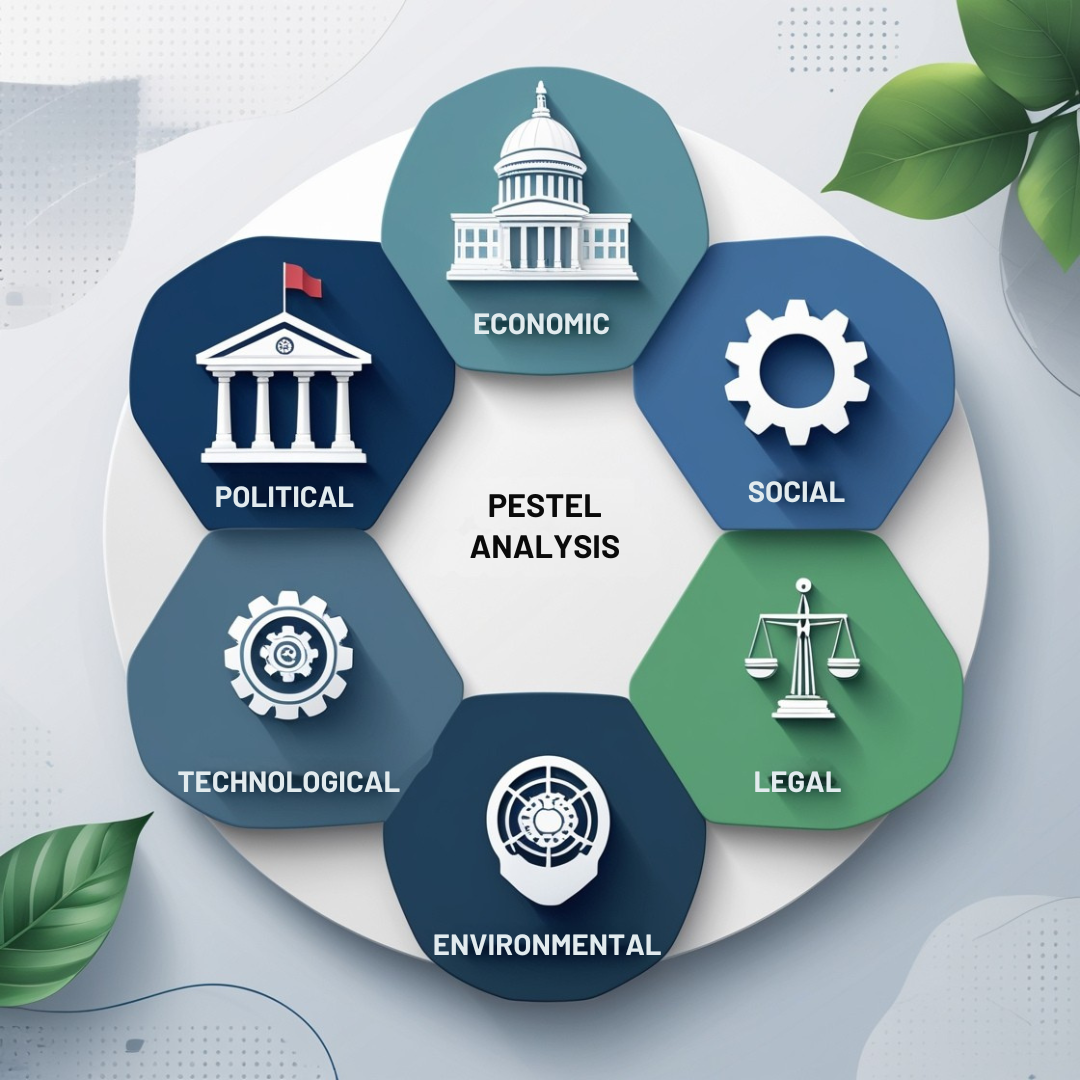PESTLE Analysis Assignment Help in the UK
- Blog
- PESTLE Analysis Assignment Help in the UK
2025-04-19

Chat with us on WhatsApp and get it done for just GBP 40 per 1000 words.
What is PESTEL Analysis?
A Guide to Understanding External Business Environment - Assignment Help UK
In today's highly competitive world, understanding the external environment is essential for strategic planning. That's where the PESTEL analysis comes in a powerful framework used to examine external factors affecting a business. Whether you're a business student, entrepreneur, or marketing strategist, mastering PESTEL analysis in business strategy can help you make smarter decisions and avoid unnecessary risks.
What is PESTEL Analysis?
PESTEL is an acronym for: Political Economic Social Technological Environmental Legal Each category covers external factors that could impact your business operations, growth, or profitability.
PESTEL Analysis Example Breakdown
Here's a detailed breakdown of each component, with real-world insights and practical examples:
Political Factors
Government policies, political stability, trade restrictions, tax policies, and international relations all fall under this factor. Political risk can make or break market entry plans.
Example: Brexit led to changes in import/export laws, affecting businesses across the UK and Europe.
Economic Factors
Inflation rates, interest rates, unemployment, and overall economic health can impact purchasing power and business performance.
Example: Example: A rise in interest rates could affect consumer loans and reduce spending on luxury products.
Social Factors
Cultural norms, population demographics, education levels, and lifestyle changes are all important to track. These factors influence market demand.
Example: The increasing shift toward vegan diets has created a boom in plant-based food businesses.
Technological Factors
New technologies, R&D developments, and automation trends offer opportunities but also threats if competitors move faster.
Example: Businesses adopting AI-driven customer service see faster response times and reduced staffing costs.
Environmental Factors
Sustainability trends, climate change, and eco-regulations affect everything from production to packaging.
Example: Eco-conscious consumers demand recyclable or biodegradable packaging.
Legal Factors
Employment laws, health & safety regulations, data protection laws (like GDPR), and consumer protection impact daily business operations.
Example: Non-compliance with GDPR in the EU can result in hefty fines and damaged brand reputation.
Benefits of PESTEL
Using a PESTEL analysis template allows you to: 1. Identify opportunities and threats in the external environment. 2. Understand market dynamics before entering new regions. 3. Align business goals with current trends and regulatory conditions. 4. Stay ahead of competitors by anticipating change.
Why PESTEL Analysis is Important in Business Strategy
PESTEL analysis is a core part of strategic planning tools used in market research, risk assessment, and expansion planning. By conducting a regular external environment analysis, businesses can create data-driven strategies and build a competitive advantage.
Conclusion
If you're looking to improve your business strategy with PESTEL analysis, you're already ahead of the game. It's a powerful tool that helps leaders navigate complexity, identify risks, and find untapped opportunities. Start using this analysis today and transform how your business reacts to external challenges.
Get in Touch Today
- Need help with your PESTAL Assignment? Let's talk.
Related Post
2025-05-03

Managing university assignments and part-time employment
Eliminate issues with academic writing and ensure accurate referencing and citation in every assignm
2025-05-08

Essay Writing Guide for UK University Students
Master UK university essay writing! Expert tips on structure, referencing & time management for stud
2025-06-05

Assignment Help in Manchester : Why Local Services Matter
Master UK university assignment writing! Expert tips on structure, referencing & time management for
Dissertation Writing Prices